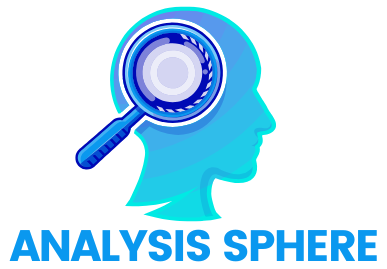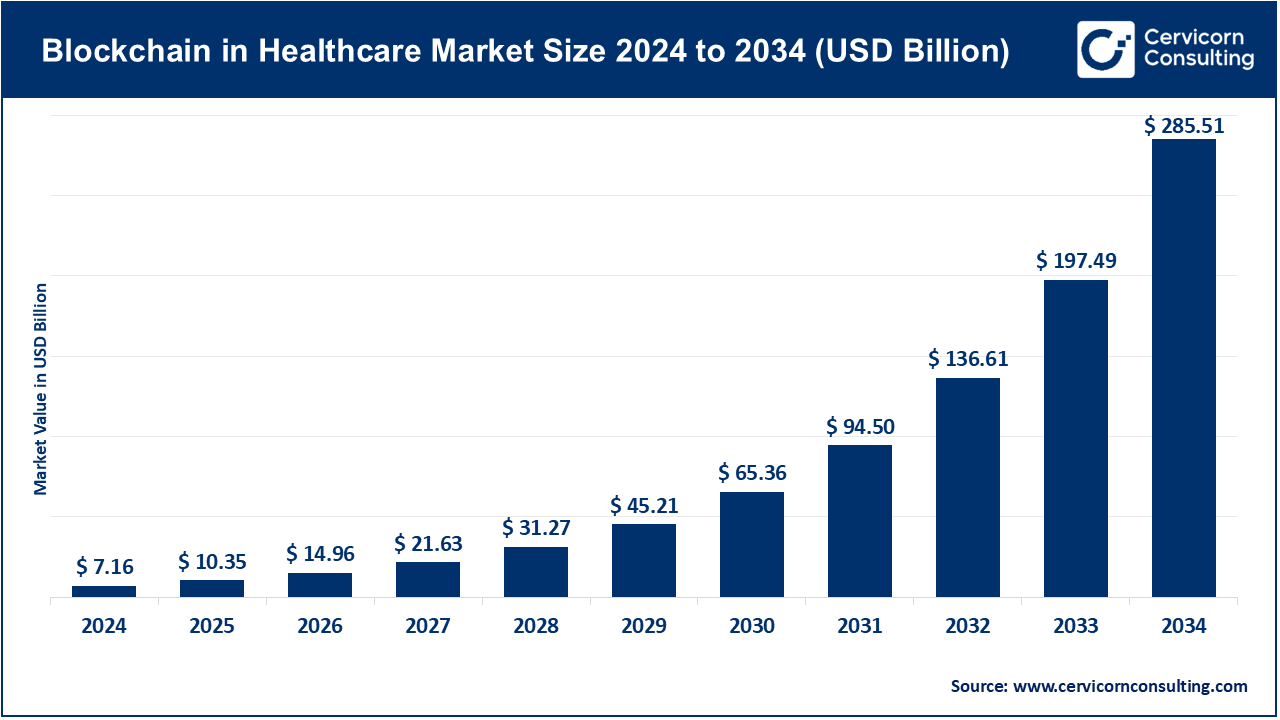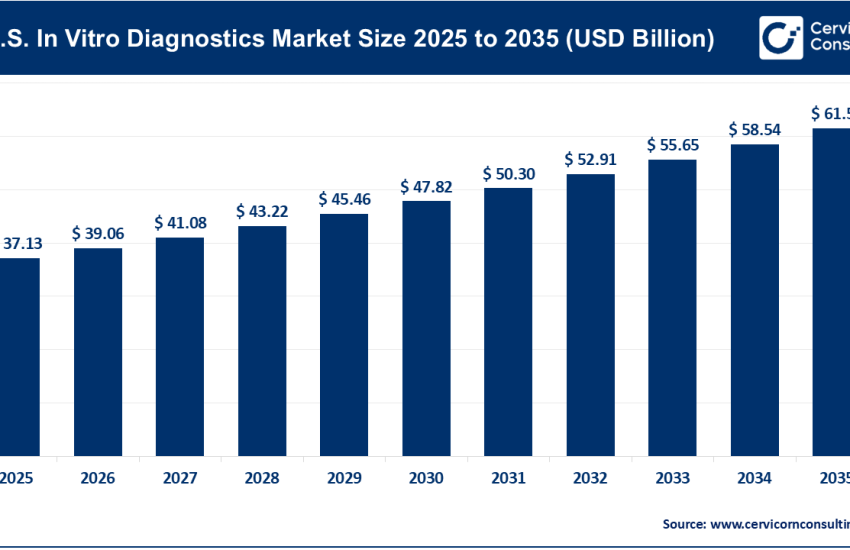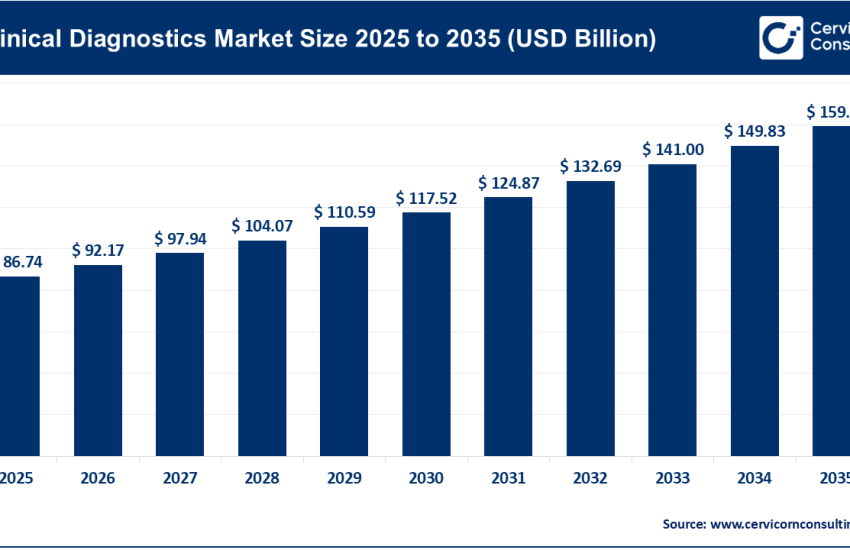Blockchain in Healthcare Market Growth Drivers, Trends, Key Players and Regional Insights by 2034
Blockchain in Healthcare Market Size
What Is the Blockchain in Healthcare Market?
Blockchain in healthcare refers to the application of distributed ledger technologies (DLT) and cryptographic methods to improve transparency, security, and interoperability within the healthcare ecosystem. These solutions help store and manage sensitive data—such as patient medical records, pharmaceutical supply-chain information, clinical trial results, and consent forms—in a secure, immutable, and decentralized environment.
Unlike public blockchains used for cryptocurrencies, healthcare applications often rely on permissioned or hybrid blockchains. This allows participants—such as hospitals, insurers, pharmacies, and regulators—to access and verify data through secure channels without exposing sensitive patient information. These systems typically combine off-chain databases (which hold actual medical data) with on-chain records (hashes or proofs) that verify authenticity and prevent tampering. This approach ensures compliance with privacy regulations like HIPAA and GDPR while maintaining transparency and auditability.\
Get a Free Sample: https://www.cervicornconsulting.com/sample/2781
Why Is Blockchain Important in Healthcare?
Healthcare systems depend on trust, accuracy, and data integrity. Every day, countless transactions occur between providers, insurers, pharmaceutical companies, and patients. Yet, legacy systems often lead to data silos, inefficiencies, and high administrative costs. Blockchain helps address these systemic issues through the following benefits:
- Data Integrity and Security: Blockchain’s immutability prevents unauthorized alterations or data breaches. Each transaction is cryptographically signed, timestamped, and permanently recorded.
- Interoperability and Data Sharing: Blockchain enables secure data exchange among diverse healthcare systems, reducing duplication and improving coordination.
- Supply-Chain Transparency: In pharmaceuticals, blockchain ensures traceability of drugs from manufacturer to patient, combating counterfeiting and ensuring authenticity.
- Improved Patient Control: Patients can own, access, and share their medical records securely with healthcare providers using smart contracts that manage consent dynamically.
- Operational Efficiency: By automating claim settlements and administrative workflows through smart contracts, blockchain reduces time and cost for both payers and providers.
- Regulatory Compliance: Immutable records provide verifiable audit trails for regulators, insurers, and clinical research authorities.
Collectively, these advantages position blockchain as a foundational layer for a secure and connected healthcare ecosystem.
Growth Factors
The blockchain in healthcare market is driven by rising demand for secure data exchange across fragmented systems, the increasing need for supply-chain transparency, and growing investment in digital transformation by healthcare and life-science organizations. Regulatory initiatives aimed at combating counterfeit drugs, managing patient consent, and enabling interoperability further stimulate adoption. Additional growth drivers include the rising frequency of data breaches, expanding healthcare data volumes, the push for patient-centric care models, and active government support through digital-health policies and national blockchain frameworks. Together, these factors are fueling a strong compound annual growth trajectory for blockchain technology in healthcare across North America, Europe, and Asia-Pacific.
Leading Trends and Their Impact
1. Drug Traceability and Anti-Counterfeiting
The pharmaceutical supply chain is one of the most promising applications of blockchain. Drug counterfeiting costs billions annually and endangers patient safety. Blockchain networks enable manufacturers, distributors, and pharmacies to record every product movement, ensuring end-to-end visibility. As a result, recalls become faster, counterfeit risks decline, and compliance with drug-traceability regulations strengthens.
2. Hybrid and Off-Chain Architectures
To meet privacy and scalability demands, many healthcare blockchains employ hybrid architectures that store sensitive information off-chain and record only cryptographic hashes or references on-chain. This method ensures that patient data remains confidential while retaining an immutable verification trail.
3. Clinical Trial Data Integrity
Blockchain improves the reliability of clinical research by recording each stage of a trial—patient enrollment, consent, data capture, and results verification. Immutable records enhance regulator and sponsor confidence, reduce errors, and improve transparency across multi-site studies.
4. Decentralized Data Marketplaces
Healthcare organizations are exploring blockchain-enabled platforms where anonymized data can be securely shared with researchers, biotech firms, or insurers. Smart contracts facilitate secure access, enforce consent, and enable monetization of medical data without compromising privacy.
5. National Blockchain Strategies
Governments in regions like Europe, the U.S., and Asia are launching digital health missions that integrate blockchain. These initiatives not only fund R&D but also promote interoperability, digital identity management, and public-private collaboration.
Top Companies in the Blockchain in Healthcare Market
1. Syneos Health
- Specialization: Integrated biopharmaceutical solutions, combining Contract Research Organization (CRO) and Contract Commercial Organization (CCO) services.
- Key Focus Areas: Clinical trials, commercialization, patient recruitment, and data analytics. Syneos integrates advanced digital platforms that enhance trial transparency and may leverage blockchain for secure data management.
- Notable Features: End-to-end trial execution, technology-driven operations, and a strong focus on decentralized trial models.
- 2024 Revenue: Approximately USD 5.3 billion.
- Market Share: Significant presence in CRO services with emerging participation in blockchain-enabled clinical trial workflows.
- Global Presence: Operations in more than 100 countries across North America, Europe, and Asia.
2. ICON plc
- Specialization: Global CRO offering clinical development and data-driven services to pharmaceutical and biotech companies.
- Key Focus Areas: Clinical research, analytics, and decentralized trial solutions incorporating data integrity tools.
- Notable Features: Pioneering decentralized trial management and advanced data platforms to improve transparency.
- 2024 Revenue: Around USD 8.3 billion.
- Market Share: One of the world’s largest CROs, contributing to blockchain-enabled data validation initiatives.
- Global Presence: Offices across North America, Europe, Latin America, and Asia.
3. Parexel International
- Specialization: Leading CRO delivering clinical research, regulatory, and consulting services.
- Key Focus Areas: Clinical trial management, real-world evidence, and regulatory compliance supported by digital transformation tools.
- Notable Features: Comprehensive service portfolio across the drug development lifecycle and partnerships supporting blockchain-based auditability.
- 2024 Revenue: Estimated around USD 2.5 billion.
- Market Share: Major CRO player with growing involvement in blockchain-driven data governance.
- Global Presence: Active in 50+ countries, with clinical operations spanning the U.S., Europe, and Asia.
4. IBM Watson Health (now Merative)
- Specialization: Formerly IBM’s healthcare analytics division, Watson Health focused on AI-driven clinical and research solutions. After its sale to Francisco Partners, it now operates as Merative.
- Key Focus Areas: Data analytics, clinical decision support, interoperability, and AI integration. Blockchain pilots have been applied to healthcare supply chains and claims verification.
- Notable Features: Advanced cognitive computing capabilities and enterprise cloud integration.
- 2024 Revenue: IBM’s consolidated revenue remains multi-billion USD, though Watson Health revenues are privately reported under Merative.
- Market Share: Influential in enterprise blockchain infrastructure for healthcare and life sciences.
- Global Presence: Strong footprint in the U.S., Europe, and Asia through IBM Cloud and partner networks.
5. Guardtime
- Specialization: Cybersecurity and blockchain technology provider known for its Keyless Signature Infrastructure (KSI).
- Key Focus Areas: Data integrity verification, health-record authentication, and supply-chain security.
- Notable Features: Pioneered large-scale blockchain deployment in Estonia’s e-health and e-government systems.
- 2024 Revenue: Privately held; estimated in the tens of millions.
- Market Share: Prominent in blockchain-based national infrastructure and healthcare record verification.
- Global Presence: Headquarters in Estonia with operations across Europe, North America, and the Middle East.
Successful Real-World Examples
1. Estonia’s e-Health System
Estonia stands as a benchmark in blockchain-driven healthcare transformation. Using Guardtime’s KSI blockchain, Estonia has secured millions of medical records by recording digital signatures and access logs on a blockchain network. This ensures that any attempt to alter data is immediately detectable, enhancing citizen trust and compliance.
2. U.S. Drug Supply Chain (MediLedger)
The MediLedger project, a consortium involving major pharmaceutical companies and technology vendors, leverages blockchain to ensure compliance with the U.S. Drug Supply Chain Security Act (DSCSA). By creating a unified ledger for product movement, MediLedger enhances traceability, prevents counterfeiting, and enables faster recalls.
3. Blockchain in Clinical Trials
Global CROs such as ICON, Parexel, and Syneos Health have initiated pilots to record informed-consent data, trial milestones, and audit logs on blockchain networks. These implementations improve transparency, minimize discrepancies, and streamline audits.
4. Vaccine Supply-Chain Tracking
Several countries have used blockchain to track COVID-19 vaccine distribution, ensuring cold-chain integrity and transparency. This demonstrates blockchain’s scalability in real-time supply-chain management.
5. Data Monetization and Research Sharing
Start-ups and research institutions are deploying blockchain-based data marketplaces where patients can securely share anonymized medical data with researchers for a fee, enabling ethical and transparent data utilization.
Global and Regional Analysis
North America
North America leads the blockchain in healthcare market, driven by strong regulatory frameworks, robust digital infrastructure, and active participation from leading technology and pharmaceutical companies. The U.S. Food and Drug Administration (FDA) has encouraged pilot programs exploring blockchain for drug traceability under DSCSA mandates. Widespread adoption among payers and providers is expected as the need for secure data interoperability increases.
Europe
Europe’s blockchain in healthcare adoption is fueled by government support for secure data exchange and privacy protection under GDPR. The European Commission’s digital-health and blockchain strategies encourage interoperability across borders. Estonia, Germany, and the U.K. are among the early adopters, focusing on national-level healthcare data integrity and e-identity management.
Asia-Pacific
The Asia-Pacific region is rapidly emerging as a growth hub due to expanding healthcare digitalization and supportive government initiatives. India’s National Digital Health Mission and blockchain framework have encouraged pilot projects in medical record management and supply-chain transparency. China, Singapore, and South Korea are also exploring blockchain to enhance clinical data governance and research collaboration.
Middle East and Africa
Countries in the Middle East, particularly the UAE and Saudi Arabia, are integrating blockchain into national healthcare strategies to enhance patient data management and medical supply tracking. African nations are gradually adopting blockchain for health registries and pharmaceutical authentication to combat counterfeit drugs.
Latin America
Emerging economies in Latin America are leveraging blockchain to improve healthcare supply chains and administrative efficiency. Countries like Brazil and Mexico have shown interest in blockchain-based data exchange systems to modernize public healthcare infrastructure.
Government Initiatives and Policies Shaping the Market
Governments worldwide are increasingly recognizing blockchain as a cornerstone for secure and interoperable healthcare systems:
- United States: The FDA’s Blockchain Pilot Program under the DSCSA has demonstrated practical benefits in improving drug traceability and recall efficiency. State-level initiatives also explore blockchain for medical licensing and patient identity management.
- European Union: The EU’s blockchain strategy emphasizes trust, digital identity, and data integrity, directly supporting health data exchange initiatives under the European Health Data Space project.
- India: The Ministry of Electronics and Information Technology (MeitY) has launched a National Blockchain Framework encouraging applications across healthcare, supply chain, and public services.
- Estonia: A global pioneer, Estonia has integrated blockchain across its national e-health, tax, and identity systems, setting a model for other governments.
- United Arab Emirates: The UAE Blockchain Strategy 2031 includes healthcare as a key vertical, aiming to digitize patient records and medical transactions securely.
These initiatives collectively validate blockchain’s role in shaping the future of healthcare governance and interoperability.
Challenges and Future Outlook
While the promise of blockchain in healthcare is compelling, several challenges persist. Regulatory ambiguity, interoperability issues, scalability limitations, and high implementation costs remain barriers to mass adoption. Additionally, the healthcare industry’s reliance on legacy systems makes integration complex.
However, ongoing standardization efforts and government-backed pilots are gradually mitigating these issues. Hybrid blockchain architectures and privacy-enhancing technologies such as zero-knowledge proofs and federated learning are paving the way for compliant, scalable implementations. As industry stakeholders witness measurable outcomes—reduced fraud, improved traceability, and faster settlements—the commercial adoption of blockchain in healthcare is expected to accelerate.
Looking ahead, the fusion of blockchain with artificial intelligence, Internet of Things (IoT), and secure cloud infrastructure will further enhance healthcare data integrity, enable real-time analytics, and streamline cross-organizational collaboration. Blockchain will serve as the digital backbone of the next-generation healthcare ecosystem—secure, interoperable, and patient-centric.
To Get Detailed Overview, Contact Us: https://www.cervicornconsulting.com/contact-us
Read Report: CRISPR Gene Editing Market Revenue, Global Presence, and Strategic Insights by 2034



